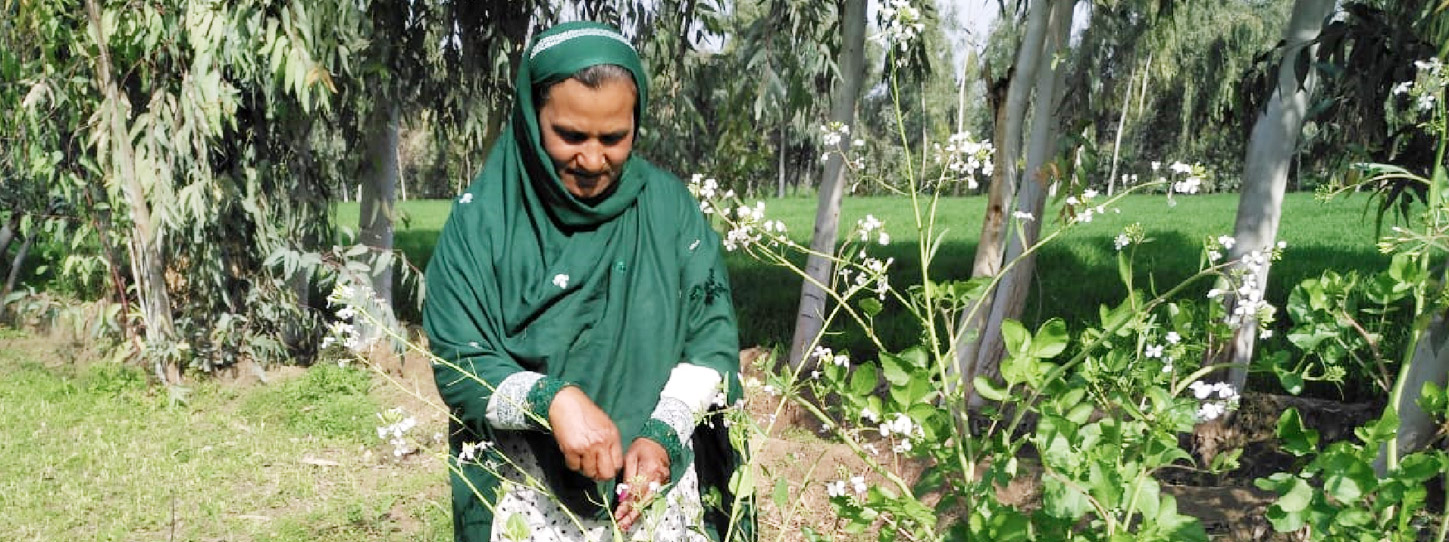
A geographic information system (GIS) is a computer system for capturing, storing, checking, and displaying data related to positions on Earth’s surface. During PRA exercise, Google maps of target villages were obtained and given to the farmers to highlight houses, farms, roads, and schools, in their villages. These maps were also shown to the farmers on tablets. The farmer community from Village No. 59/MB, district Khushab, Rehman Colony, Khushab and Village No. 109/SB, district Sargodha were proactively involved in seeing and marking their houses, farms and other infrastructure with different colours. This was the most attractive and charming exercise for the farmers. Not only men but also women at some places were surprised to see their village maps and took keen interest in discussions and community meetings.
According to local farmers, “Caritas teams showed us our villages, our fields, our streets and even homes on the tablets. It created a great interest among our community members”. People tried to locate their houses and fields on the printed map and praised Caritas for being so creative and innovative in the assessment of villages. Shamim Bibi, Anam Mariam, Miss Shabana, Shakila Bibi, Mumtaz Bibi and Janu Bibi belonging to village 59/MB and Rehman Colony (District Khushab) are some of the female community members, which participated with keen interest and were happy to locate their houses, farms, mosque, market and roads on the maps.
Seeing their houses and farms on the maps was the first experience of local villagers. Both male and female members were excited and expressed it as great lifetime learning and rated SAFBIN as a capacity building program for the farmers.
Safia, a mother of four, and a resident of Chak No. 109 SB,district Sargodha said, I know Caritas Pakistan for some years because of its several initiatives in my village, but was not much involved at that time; but this time I consider myself a very lucky person on becoming a part of SAFBIN program”. This Program is spreading message of how a smallholder farmer can benefit by learning, adapting to climate change and building linkages.